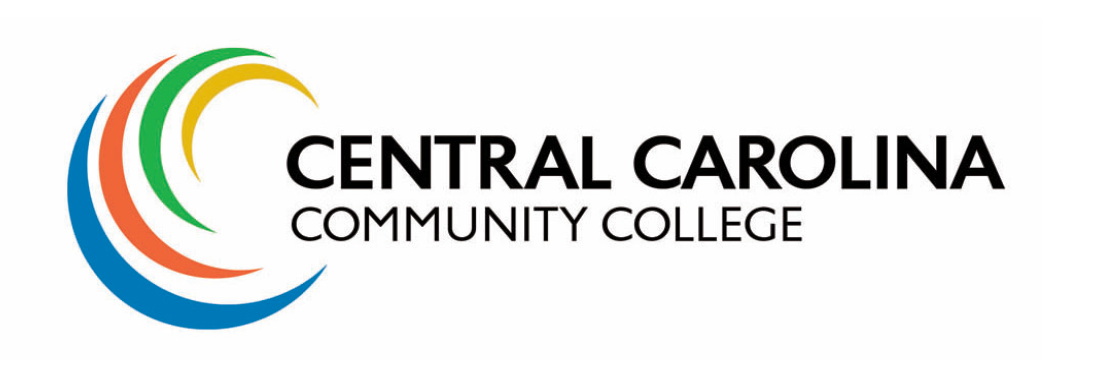Meeting Students Where They Are
 |
 |
 |
Many of today’s college students lead complex lives. More than a quarter of community college students live in poverty, according to a 2019 Pew Research report. A 2018 survey across 20 states found that 43 percent of community college students reported being food insecure and almost half experienced some level of housing insecurity in a year. Almost a third of community college students are first generation, one-quarter of all college students are parents, and more than a quarter work full time.
These realities do not leave students when they step onto campus. They are ever-present, and they hinder students’ abilities to succeed.
In response, in 2012, Central Carolina Community College (CCCC) implemented data-informed success coaching. Simply put, a success coach develops relationships with students, gaining insights into their lives and connecting them to the support and resources they need to be successful students.
Today, CCCC is partnering with nine other North Carolina community colleges and organizations including Watermark, DVPPRAXIS LTD, and JFF to implement and evaluate success coaching. With support from a U.S. Department of Education’s First in the World grant, more than 20 success coaches are serving more than 7,000 students representing a variety of genders, ages, races, and experiences.
The initiative — Carolina Works — is using the “gold standard” randomized-controlled trial research design to learn if students assigned a success coach persist longer, earn more credits, and have an increased rate of earning a credential compared to similar students without a coach. Now in its fourth year, the timing is right to share what we’ve learned about success coaching and how it fits within — and can augment the impact of — broader student success efforts in North Carolina community colleges, including North Carolina Guided Pathways, which is helping colleges implement guided pathways, and Finish First, which helps students better track their route to college completion.
What is a success coach?
Coaches help students meet their personal and academic goals, improve study skills, manage their time, and address life-balance needs. While students have other important touchpoints on campus — an advisor and faculty members, for example — a success coach plays a unique role that combines direct support to students while also acting as “central dispatch,” referring them to other resources, mostly on campus but also in the community.
“I used to be a procrastinator. That, plus my home life, caused a lot of stress. My coach encourages me to no end and pushes me when I feel like I can’t give anything else. She helps students like me develop a passion for doing better.” — Carolina Works student
This is especially important for first-generation students learning to navigate college. Coaches are able to do this because they use data to know who needs support and are able to dedicate time to getting to know their students. Other college personnel typically have a narrow lens into students’ needs based on their particular areas of interaction, such as advising or financial aid. Success coaches, meanwhile, have a wider “whole person” lens. This matters because students are more capable of resolving roadblocks than they may realize, but they first need to know that supports — whether financial, academic, mental health, or others — are available and, importantly, ask for assistance. Because success coaches and students establish relationships, a student is more likely to divulge the help they need, allowing coaches to work with them to prevent small problems (a few missed classes or one bad grade) from turning into larger ones (dropping out or failing). that derail college success. Success coaches also enable feedback loops with college faculty and staff. When a faculty member notifies a coach that a student has missed class or their grade has dropped, for example, the coach reaches out to the student to find out why and develop an action plan. The coach follows up to encourage student accountability and keeps the instructor informed. Closing the communication loop enables faculty to focus on teaching and lets them know their alerts make a difference. Technology is a driver behind success coaching. Carolina Works colleges use Watermark.
What does high-quality implementation look like?
Through our evaluation partner, DVP-PRAXIS LTD, we have preliminary insights into impactful success coach practices. They include:
- Using a data-informed approach every day to identify and prioritize students for outreach
- Spending the majority of time outside of the office, engaging face-to-face with students
- Using multiple communication channels, including texting students to provide additional follow-up,
support, and tips
Interviews with success coaches reveal other important success coaching practices, including:
- Building relationships with students
- Developing the ability to generate productive and sometimes difficult conversations with students in
order to understand what they need - Helping students strengthen their meta-academic skills
- Developing relationships with faculty so that coaches and instructors can work together to support
students’ success in the classroom - Creating a strong understanding of on-and off-campus resources for student referrals
- Conducting outreach to remind students to register for the following semester and re-engaging
students who have “stopped out”
“I get excited when I get to help a student achieve academic goals. Some of my students will drop by my office to tell me when they have passed a difficult test or course. I am thrilled to be a part of those successes. It’s all about the relationships that we are building. We all finish stronger together.” — Success coach
Beyond the practices of coaches themselves, high-quality success coaching also depends on institution-level-decision-making.
- Colleges need to make strategic decisions about who receives a success coach. Under the grant, colleges have assigned coaches to curriculum students, but some colleges are expanding (or considering expanding) coaching to early high school, continuing education, and/or basic skills students. Coaches say caseloads should ideally be around250 students per coach, but most serve more.
- While there is no single model for where success coaches should “sit” within a college’s organizational
structure(academic affairs vs. student services, for instance), wherever they are located there needs to be clarity about a coach’s role and how they connect with and complement other student support and advising functions. - The success coach role is nuanced and demanding, and they do not have the same skill sets as an advisor. For a coach, being able to connect with students is more important than having deep content knowledge in any particular student support area. Hiring the right individuals as coaches and providing professional development is important; it helps them build the varied skills they need to effectively support students.
- Widespread technology training for coaches, faculty, and staff to use the predictive analytics and case
management tool is also critical. Inevitable faculty and staff turnover means that training must be frequent, with the goal that using the platform becomes part of the college’s ethos for supporting students.
“Success coaches benefit students by connecting them to the support they need so they are in a position to earn a credential more quickly. They also benefit faculty and staff because having a coach as a student’s primary point of contact allows others on campus to focus on what they do best—teaching and being specialists in their fields.” — Administrator
Preliminary student outcomes from success coaching
North Carolina’s 10 colleges implementing success coaching have been randomly assigning students to receive a student success coach — or not— since 2016. Preliminary results indicate that 18 months after starting, students with a success coach have retention rates that are 3 percentage points higher than those without a coach.1 Final evaluation results will be available in 2020.
Paying for success coaching
Carolina Works has created a tailored return on investment (ROI) model for each of the 10 colleges in this initiative to determine whether revenue from improved student retention is sufficient to cover the costs of success coaching. When looking at the ROI analysis for one college (a school typical in size and profile of many in the state), the model indicates that increased revenue that comes to the college from retaining on average 3 percent more students slightly exceeds the college’s costs to implement success coaching. Those costs primarily comprise paying for success coach salaries and Watermark, the technology platform. This ROI analysis’s frame of reference is a college’s budget, and this is important because funding additional support staff on a community college campus is difficult. Understanding the impact on the college’s bottom line informs decisions around sustaining and expanding success coaching. That said, this ROI model only tells part of the story. It does not take into account other types of returns. For example, there are benefits (higher future wages) that accrue to students (and their families) who stay on a path toward a college credential. There are also returns to the communities where they live (more productive citizens) and to the employers who hire them (more highly skilled workers).
Scaling success coaching in North Carolina
Success coaching is a model that merits scaling. It fits with the North Carolina Community College System’s current strategic plan, which calls for “integrated, targeted support services that promote student success.” In addition, like peers around the country, community colleges in North Carolina are implementing guided pathways and other student success initiatives such as career coaching for dual enrollment students. These efforts require not only successfully transitioning students to college and clarifying the path, but also helping students stay on that path by holistically supporting their needs—precisely the role of a success coach.
Finally, we have emerging evidence, based on rigorous evaluation, that identifies high-impact and cost-effective success coaching practices, as well as preliminary results indicating that students with a success coach are more likely to persist. As a state, we can support and expand success coaching by:
- Continuing to share what we know about effective success coaching and adding these lessons to the broader student success conversation in North Carolina.
- Sustaining and growing the professional development resources created by this initiative that are used to train and support new and existing coaches.
- Identifying and addressing policy implications that emerge. For example, success coaches have elevated the fact that cumbersome and time-consuming course withdrawal policies and difficult-to-understand information about Satisfactory Academic Progress are two frequent stumbling blocks for
students. - Supporting technology that underpins success coaching. Technology is a backbone, providing the data and enabling efficiencies that allow coaches to focus on coaching. It’s especially difficult for small colleges to pay for the technology, and there should be a statewide conversation about ensuring access.
“[My coach] has been someone that I could talk to when I needed someone to talk to. I know that even though I have personal stuff going on, she’s there for me.” — Carolina Works student
North Carolina recently adopted a postsecondary attainment goal, “2 million by 2030,” as part of my future NC. Reaching this goal will require many strategies and investments. As a state, we won’t reach this goal unless we support the more than 680,000 students enrolled in North Carolina’s community colleges. In light of the daunting number of these students who face poverty and other barriers, building and scaling success coaching models should be one approach that colleges and the state implement to drive more students toward credentials and a better economic future.
North Carolina won’t reach its postsecondary attainment goal unless we support the more than 680,000 students enrolled in our community colleges.
Acknowledgments
The authors would like to express their gratitude to the students, coaches, and administrators that we interviewed for this brief. We appreciate them taking time to share their experiences with success coaching. In particular, we would like to thank and celebrate the success coaches for the work they do every day to help students achieve their goals. We also want to thank our project partners at Watermark and DVP-PRAXIS LTD for their contributions to this project.
Endnote
1. Valentine, J. & Price, D. (2019). Carolina Works Evaluation Brief: Early Results in Proactive Coaching. (Indianapolis: DVP-PRAXIS LTD, 2019).
 |
 |
 |



